#2: "that’s discourse, baby"
Kore-eda's "Monster", Dederer’s “Monsters”, and gaslighting myself over a stranger's Letterboxd review.
Ever since making an account last year, the first thing I do whenever I finish a movie is open up Letterboxd to read the reviews. I was doing exactly that as I shuffled out of the AMC Theaters on the Boston Common last Tuesday, one hand scrolling while the other pushed the door out into the crisp evening air.
This time, the movie I’d just seen was Hirokazu Kore-eda’s Monster. Monster is about a boy named Minato whose mother discovers he’s being abused by his schoolteacher. Over the course of three parts recounting the same events from the perspectives of the mother, the teacher, and finally Minato himself, we learn that the truth is far more complicated than it seems. Each change in perspective uncovers the limitations of the previous one, showing us how it’s been colored by the character’s fears and assumptions. In the end, Monster is really about the stories we tell ourselves about one another.
I liked Monster - as much as you can like something that leaves you an emotional wreck. As I waited to cross the street then, awash in twinkling Christmas lights and shivering in the warmest jacket I own (California has made me soft), my eyes still stung from crying and my ears rang with the haunting final melody of Ryuichi Sakamoto’s score.
It was in this fragile state that I came across a Letterboxd review that called it emotionally manipulative, gimmicky, and lacking real depth. It was so confidently worded that I found myself questioning whether I’d been wrong to like the movie. Maybe, I thought, my being moved to tears meant I’d fallen for cheap tricks and lacked the discernment to see that it was actually bad. I considered lowering my rating from 4 stars to 3.
This kind of thing happens to me more than it probably should. I leave a movie feeling good about it, then read a review that points out some flaw, which in turn makes me gaslight myself into believing I actually didn’t like it. Whence this impulse to change my mind? Is it insecurity about my own taste or a smooth-brained desire to conform? Why do I feel threatened by one critical review next to dozens of positive ones?
These questions swirled in my head as I continued down the rabbit hole of negative reviews for an embarrassing amount of time (hours, plural). Later that night, feeling affronted and more than a little defensive, I resolved that for once I’d fight the urge to change my rating and instead study these critiques of Monster to see if I could come to my own conclusions about their validity.
The investigation
In the reviews, I kept encountering references to the same three movies: Akira Kurosawa’s Rashomon, Paul Haggis’s Crash, and Lukas Dhont’s Close. The basic idea was that Monster pointlessly copies Rashomon’s multi-perspective story structure as a gimmick, engages in wrongheaded social commentary like Crash, and is redundant with or derivative of Close. Since I’d never seen Rashomon or Crash, I decided that watching them would be a good place to start.
Spoilers ahead for Monster (2023), Rashomon (1950), Crash (2004), and Close (2022). Consider yourself warned!
Rashomon
I began with Rashomon, Kurosawa’s influential film about a man’s murder and the rape of his wife, both of which are ostensibly committed by a notorious bandit. The conceit of Rashomon is that it tells the same story from multiple perspectives - the bandit, the wife, the dead man (by way of a medium), and a bystander who witnessed the incident - and the accounts vary in such a way that they cannot possibly all be true. Many film folks regard Rashomon as the gold standard illustration of the subjectivity of memory and reference it as a shorthand to describe films with a similar structure like Knives Out or Handmaiden.
I found Rashomon a bit too shouty for me to really enjoy it. (So much shout-yelling and shout-crying. Stop shouting!) I also did not read it as a story about the subjectivity of memory but rather one about people deceiving each other for personal gain. For me, what makes Rashomon’s structure interesting is that each character’s account of the events reveals their individual motivations.
If anything, Monster is more interested in subjectivity than Rashomon in that it uses a similar multi-perspective structure to show how each character’s fears and assumptions affect their perception. Breaking up the film in this way allows Kore-eda to imbue each chapter with a different tonal quality: the first segment from the mother’s point of view has all the genre cues of a suspense film, whereas the third from Minato’s has a more gentle, romantic feel. These differences in tone are as much a part of the story as the new information uncovered in each segment - for that reason, I feel that Monster’s structure is not a gimmick at all but a deliberate, justified creative choice.
Crash
These reviewers were right about one thing at least, and that’s that Crash is terrible. Crash is a misguided, offensive film about racism in America that inexplicably beat Brokeback Mountain for Best Picture at the Oscars in 2006. Set in “post-9-11 Los Angeles” (lord have mercy), Crash follows a dozen or so racial caricatures over the course of 36 hours while they act out stereotypes and behave violently toward each other. I cannot overstate how offended I was by this movie. Its central thesis appears to be that racism is not a systemic issue but the result of individually racist people acting helplessly on their racist impulses.
Reviews of Monster that reference Crash perceive a crucial attribution error in both. Where Crash falsely attributes systemic issues to individual behaviors, they claim that Monster wrongly absolves its characters of individual responsibility, placing blame instead on a vague notion of “the system” without any genuine curiosity about how that system functions.
I disagree with this assessment. For one, I do not think the film’s characters are absolved of individual responsibility. Critically, this depends on your interpretation of the somewhat ambiguous ending - I believe Minato and his classmate Hoshikawa have died in the storm. They are discovered by Minato’s mother and their teacher Mr. Hori, who will probably spend the rest of their lives haunted by their role in allowing this to happen.
I also think the film does reasonably well at showing how the “system” perpetuates itself - how fears and assumptions are taught to us or spread perniciously among peers, how we may not even realize which stories we tell are most hurtful to the people around us. For example, at the same time that Mr. Hori wants to protect kids from bullying, he harms them with his casual reinforcement of gender norms (“you call yourself a man?”).
Another important difference between Monster and Crash is believability. Maybe this makes me a sucker, but I was convinced by each point of view presented in the Monster before the truth eventually came to light. By contrast, the characters in Crash do not have credible motivations. They exist only to behave in the most unhinged, exaggerated, and hateful ways possible.
Close
The big reveal in the third act of Monster is that while Minato’s mother and teacher were freaking out about bullying or abuse, what was actually going on was a budding queer romance between Minato and Hoshikawa. Many of the mysterious events of the first two acts are revealed to be consequences of Minato’s internalized homophobia, including the original lie about Mr. Hori’s abuse, intended as misdirection. Clearly, this story has a lot in common with Close, a film about a boy in France whose internalized homophobia leads him to push his best friend away, driving the friend to suicide.
The main reason reviewers brought up Close in relation to Monster was to suggest that the films are too similar, even redundant. Though the superficial similarities are undeniable, I also disagree with this suggestion.
Close is a beautiful and devastating film - indeed, it feels like Lukas Dhont’s primary goal in making the film was to make it as beautiful and as devastating as possible (it’s literally set in a freaking flower field). But as beautiful and as devastating as it was (which again is to say, extremely), it was essentially a straightforward telling of a tragic story. Kore-eda appears to have had different motivations in making Monster. It’s much more focused on the conditions surrounding the central tragedy than the tragedy itself, and if anything doesn’t spend enough time developing Minato and Hoshikawa’s relationship.
Vindication, I guess
By the end of the week, having watched these films and considered the arguments of the negative reviewers, I felt much more confident defending my original rating of Monster. But after all that rigmarole, I still hadn’t actually answered my original questions about why I felt compelled to change it in the first place.
Beauty and the beautiful
After all, changing my rating would have felt like a denial of my actual lived experience engaging with the film - the feelings I felt, the thoughts it provoked. Art is something about which reasonable people are supposed to be able to disagree. As my friend Molly would put it, that’s discourse, baby.
And yet, on that street corner outside the Boston AMC, I really did feel pressure to change my rating in order to align it with someone else’s.
Earlier this month, I read about the distinction between “beauty” and the “beautiful” in an aptly named book called “Monsters: A Fan’s Dilemma” by Claire Dederer. “Monsters” explores whether it’s possible or moral to appreciate or even love a work of art if the creator of that art is an awful (usually) man.
The book posits that beauty is our genuine emotional response to art whereas the beautiful is a social construction. Dederer quotes a 1995 interview with the critic Dave Hickey, “[The beautiful is] a set of ambient community standards as to what constitutes an appropriate visual configuration. It’s what we’re supposed to like.”
A cartoon lightbulb lit up over my head when I revisited that passage for this essay. When viewed through this framework, the pressure I felt to change my rating when I read these reviews could be seen as the force of an ambient community standard for beautifulness. My discomfort was a manifestation of the tension between that standard and my own experience of the movie’s beauty.
Performance anxiety
The reviews that are most effective at triggering my self-gaslighting tendencies invoke some principle that aligns with my values, whether moral (e.g. anti-racism) or aesthetic (e.g. originality). When I read these, I feel pressure to agree with them as a way to stay true to those principles - if I liked a movie that an internet stranger calls racist, does that make me racist?
The internet raises these stakes further by turning opinion into performance. Having opinions is a fact of human existence - sharing an opinion online transforms it into a take, a public declaration of your taste and values. Social media in particular creates a low-nuance environment where it often feels like there can be only one correct stance on any topic. It’s no surprise then that I would feel pressure for my Letterboxd reviews to project acceptable or righteous taste aligned with the ambient standard for beautifulness.
As for why I felt beholden to one reviewer’s contrarian standard for beautifulness instead of the standard of the majority who liked the movie, I chalk that up to a kind of status anxiety for which I also blame the internet. Coming of age in the Tumblr era instilled in me a sort of hipster “dare to be different” ethos, a romanticization of individuality and rejection of mindless bandwagoning that treats contrarian opinions as inherently more valuable than popular ones. The irony, of course, is that seeking the appearance of independent thinking by always trying to be different than the majority is its own form of mindlessness.

These mentalities are reductive and don’t serve me. I can believe in the same principles as someone else and still have a different interpretation of a piece of art - and we’d both right, because aRT is sUBjeCtiVe. And going against the grain as an aesthetic choice rather than a genuine one doesn’t make you more enlightened, just more obnoxious. (I’m still trying to cure myself of this way of thinking more than a decade after the heyday of the hipster era. Pray for me!)
Letting myself off the hook
So the answer is I should stick to my initial reaction to art and never allow myself to be swayed by anyone else, right? Don’t be silly, things are hardly ever that simple. Being open to other points of view enriches the experience of cultural consumption. Many a time have I happily changed my mind about a work of art after learning from others’ perspectives. With that in mind, what’s the most defensible way to decide when to stick to my guns and when to be persuaded by an “ambient community standard”? There’s probably no good answer to that question.
In the closing chapters of “Monsters: A Fan’s Dilemma”, Dederer makes the case that we shouldn’t let the desire for a righteous stance on art keep us from the enjoyment of it. “There is not some correct answer. You are not responsible for finding it. Your feeling of responsibility is a shibboleth, a reinforcement of your tragically limited role as a consumer. There is no authority and there should be no authority. You are off the hook. You are inconsistent. You do not need to have a grand unified theory about what to do about Michael Jackson. You are a hypocrite, over and over. You love Annie Hall but you can barely stand to look at a painting by Picasso. You are not responsible for solving this unreconciled contradiction. In fact, you will solve nothing by means of your consumption; the idea that you can is a dead end. The way you consume art doesn’t make you a bad person, or a good one. You’ll have to find some other way to accomplish that.”
Accordingly, I’m coming away from my time with Monster without a clear set of rules for how I’ll form righteous opinions about art going forward. Like Dederer, I’m more and more convinced that defining one is a pointless exercise.
In the end, the only form of righteousness I really care about when it comes to my opinions on art is honesty. After all, it was the feeling that changing my rating of Monster would be dishonest that sent me down this rabbit hole in the first place. So my commitment myself and to you, reader, is that any opinion in this newsletter will be an honest one. Sometimes it’ll be my raw reaction to something, and other times it will have been influenced by another perspective - there are no rules! As long as it feels honest, anything goes.
And if, in turn, you find that you disagree with those honest opinions, I beg of thee to please let me know. Because that’s discourse, baby.


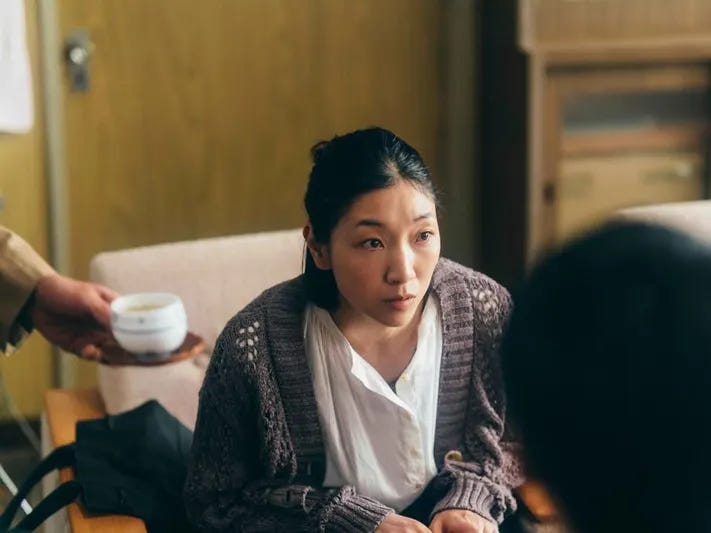
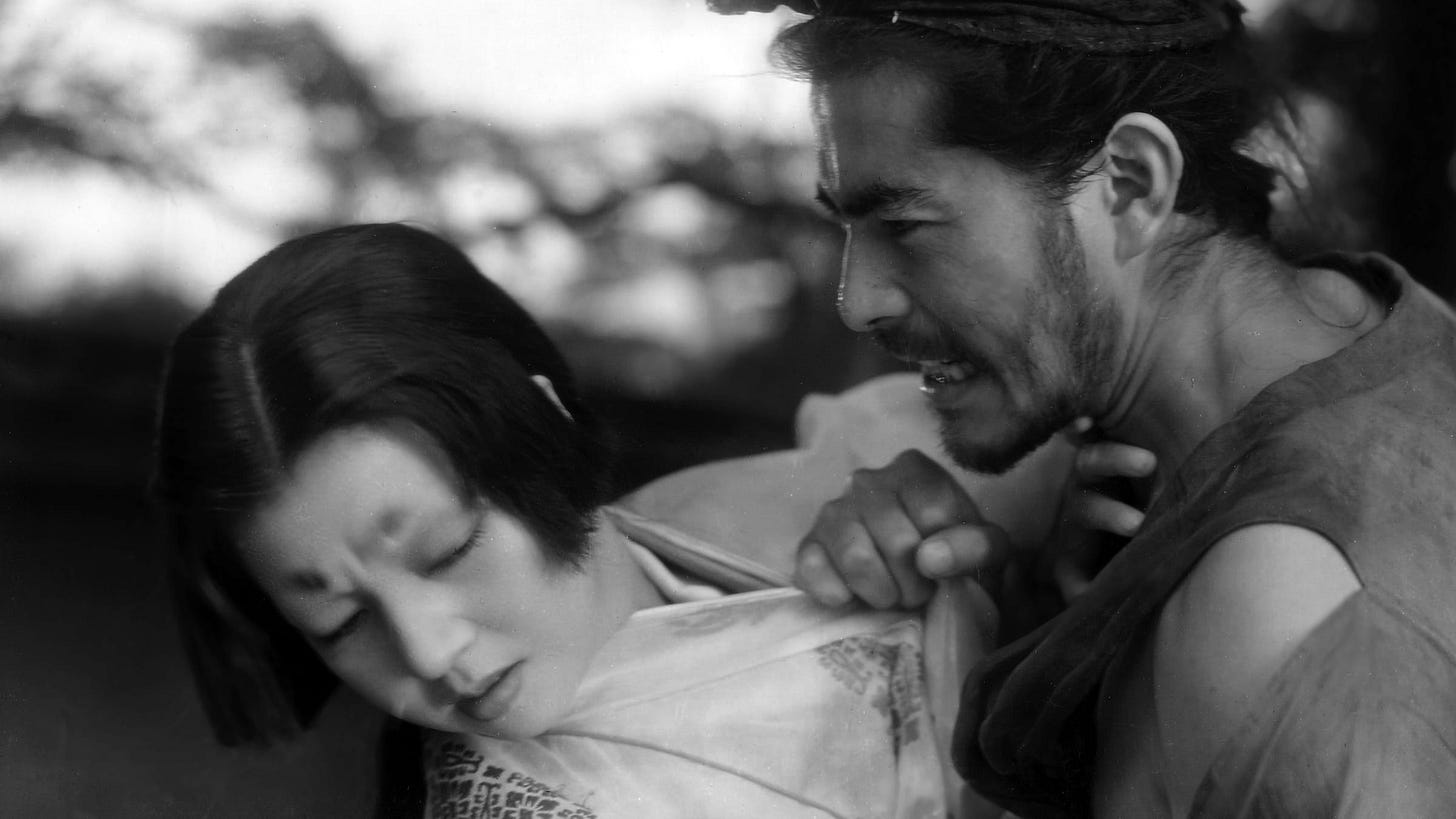

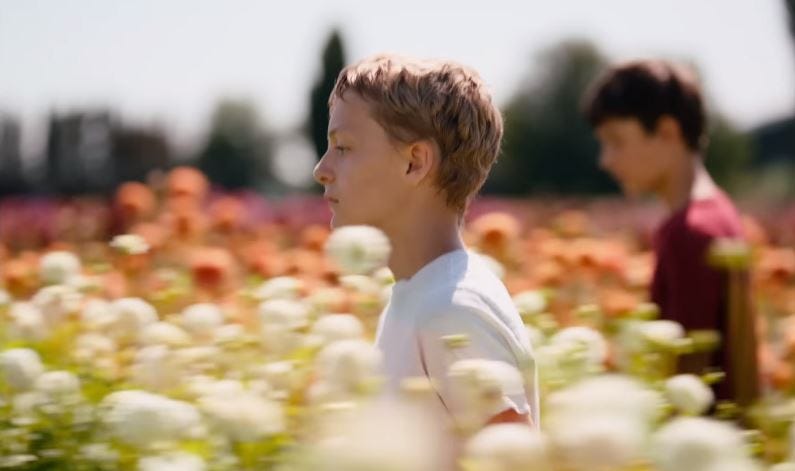
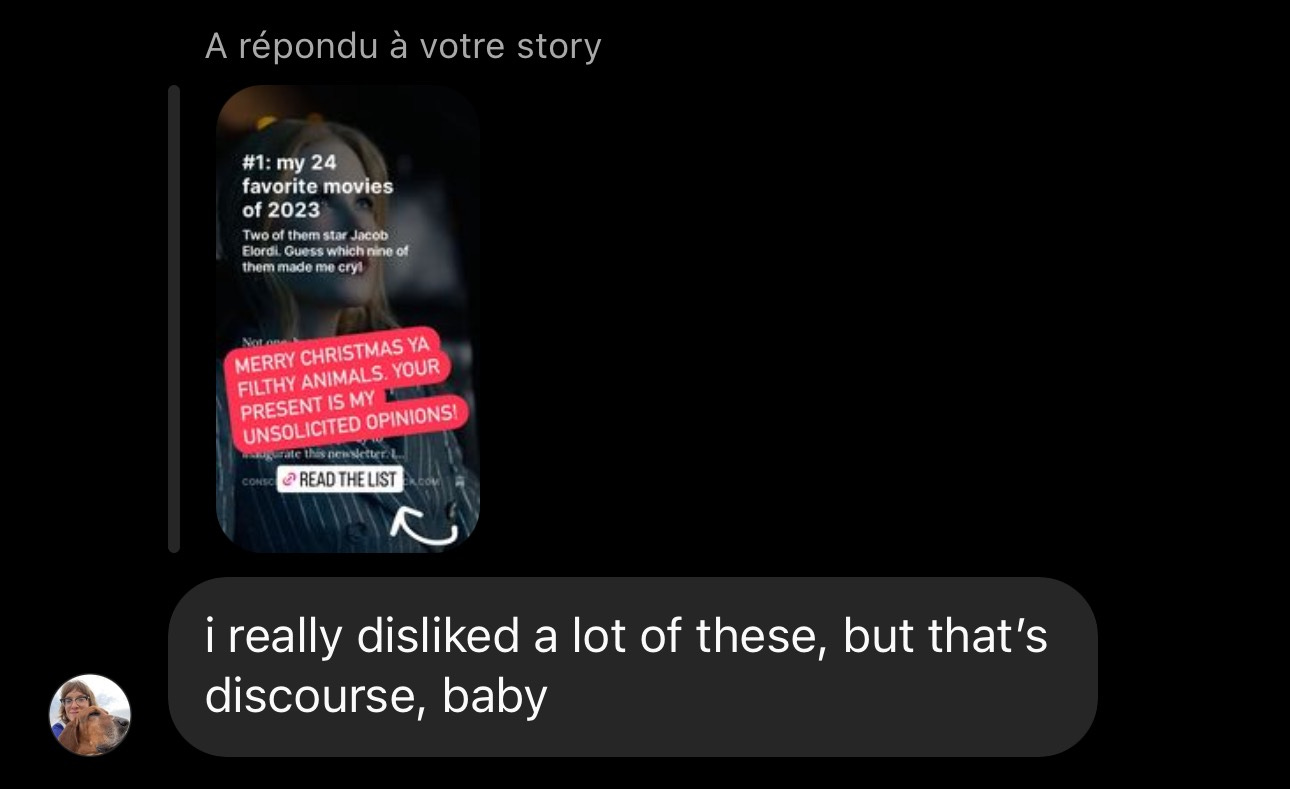
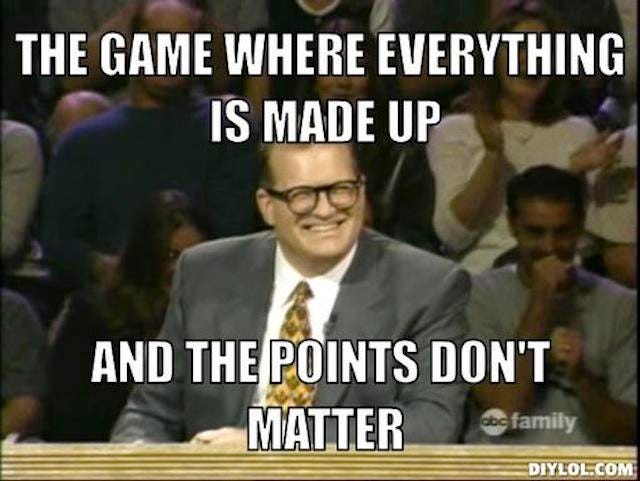
Keep checking yourself, but also, IME you're often very astute. So, yay, honesty--practicing trusting oneself is the harder thing, or so I find.
If you received this multiple times, it's because I was figuring out how Substack works, sorry! Hopefully you can find it in your heart to forgive me.